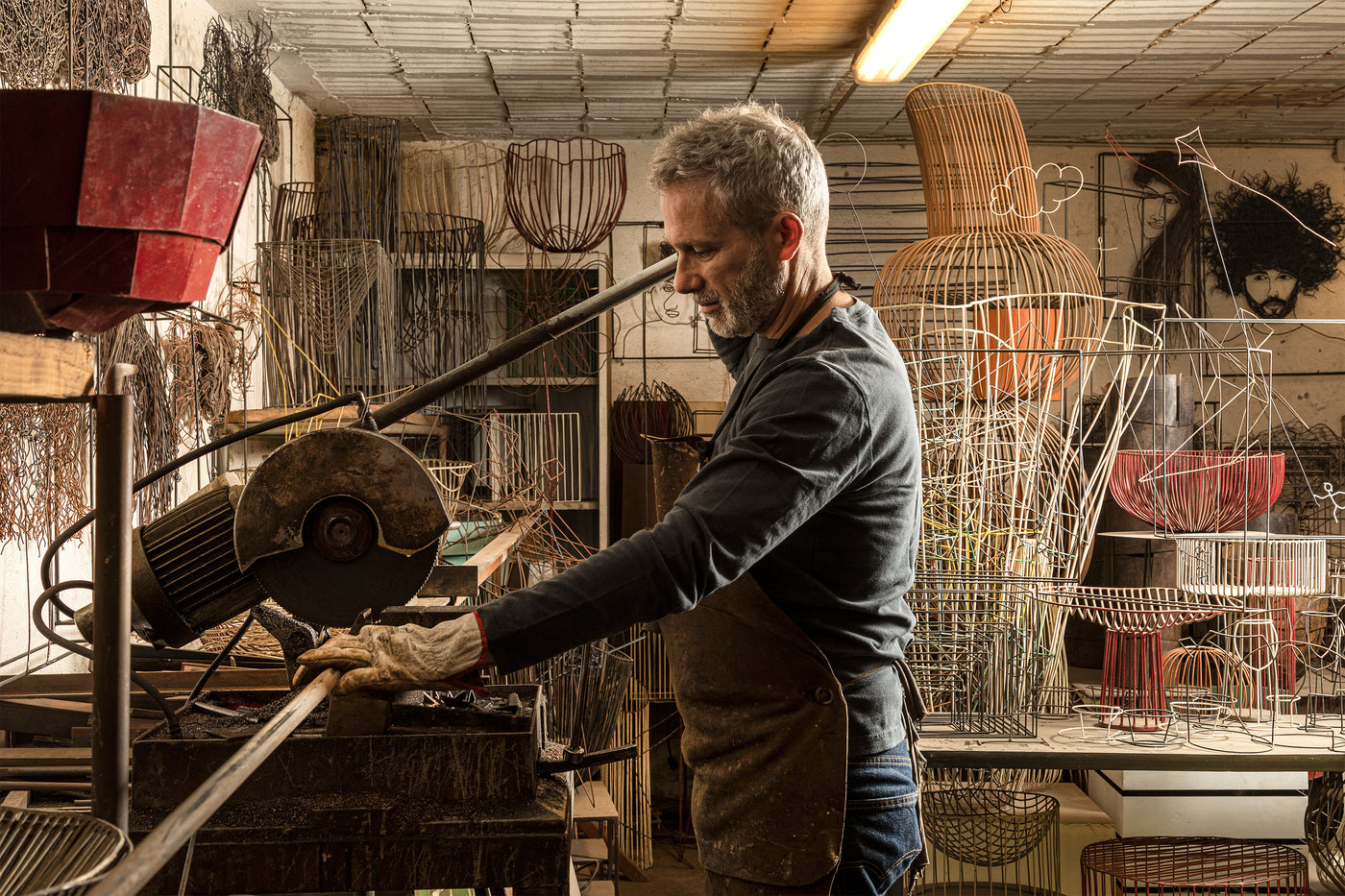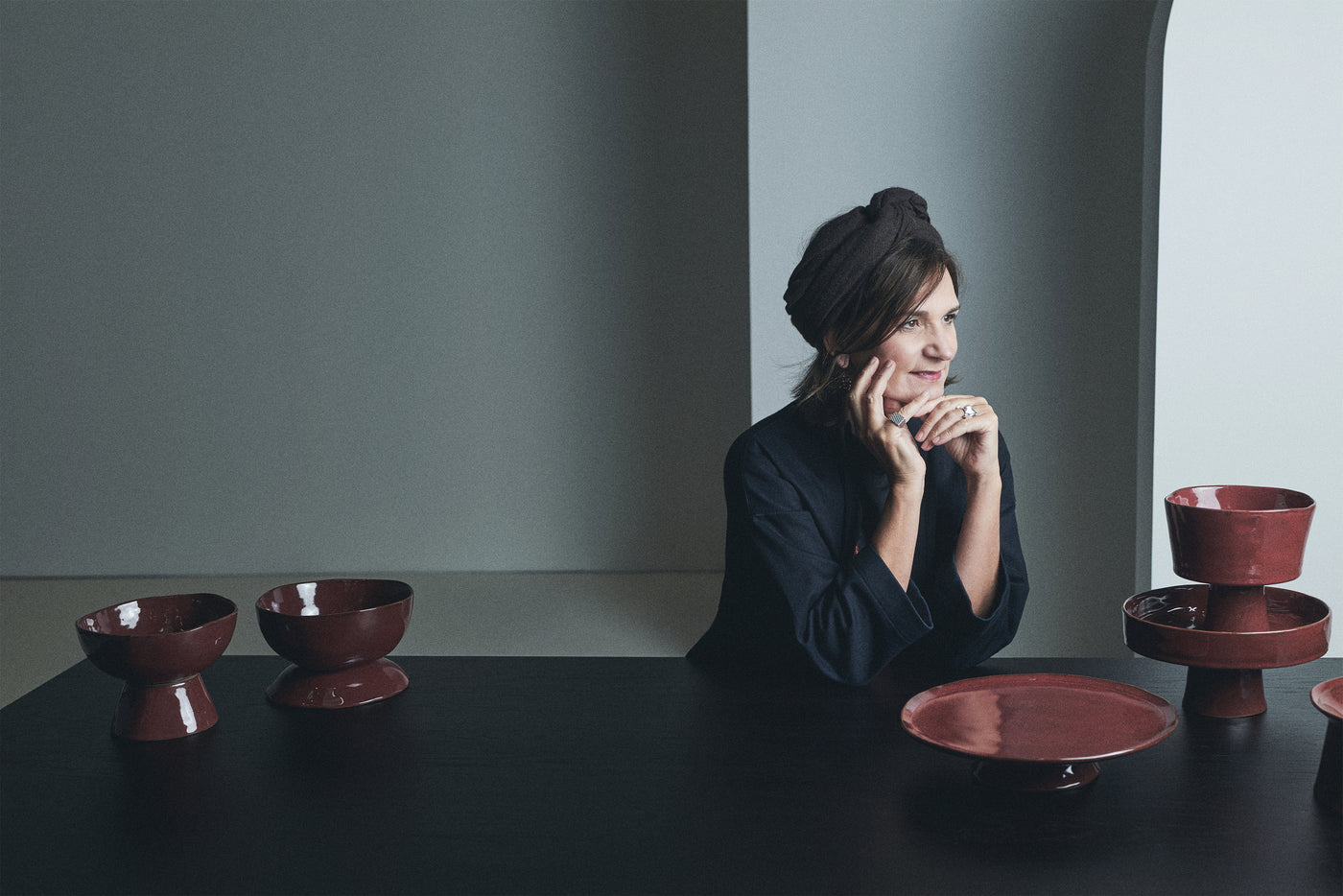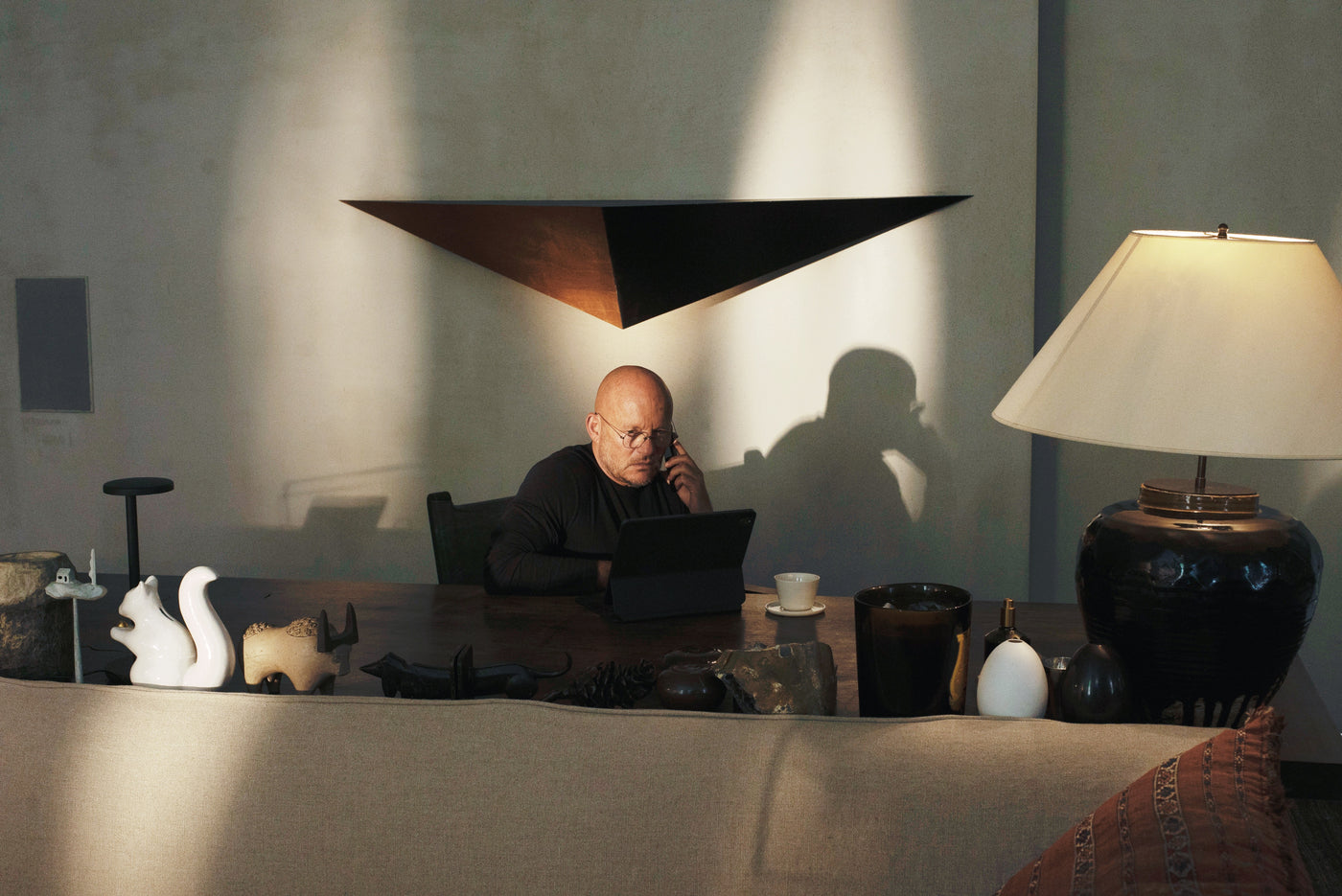« Ici, c’est comme si vous entriez chez moi. » Avec son nouveau restaurant PrivéPrivée, Sergio Herman revient aux racines de sa carrière. Caché derrière une façade discrète à Anvers, le chef renommé a créé un lieu encore plus personnel que Oud Sluis, le restaurant de ses parents où tout a commencé. Après de nombreux projets en Belgique et à l’étranger, Sergio se remet aux fourneaux, en mettant à l’honneur sa cuisine zélandaise tant aimée. « Ici, nous accueillons nos invités dans ma cuisine personnelle, entourés de mes œuvres d’art et souvenirs, » confie le chef étoilé.

Ce n’est pas un hasard si Sergio et Serax y présentent leur nouvelle collection d’art de la table. Baptisée Silhouette, elle nous ramène à l’époque où Sergio faisait ses premiers pas culinaires à Oud Sluis, un lieu qui, sous sa direction, obtiendra trois étoiles Michelin. Silhouette est une interprétation contemporaine des célèbres assiettes en porcelaine blanche, utilisées autrefois à Oud Sluis et dans bien d’autres restaurants classiques et chaleureux.
Le nom Silhouette met en avant les contours élégants de la collection, mais il évoque aussi une sonorité poétique, qui rappelle l’atmosphère vivante des brasseries traditionnelles. « En plus de trente ans de carrière, j’ai eu le privilège de découvrir les plus beaux lieux et restaurants du monde, et c’est ce qui m’a façonné, » explique Sergio. « Mais si je repense à mes souvenirs les plus chaleureux, ce sont les brasseries simples, où l’on peut s’installer sans façon et se sentir bien. » Grand amateur de la culture culinaire belge, Sergio exprime cet amour à travers Silhouette. « C’est un patrimoine qu’il faut préserver. »
Outre la brasserie, la nature a également joué un rôle essentiel dans la conception de Silhouette. Des formes naturelles, comme les nuages et les fleurs, ont inspiré les lignes subtiles de la collection. « Avant tout, je suis un enfant de la Zélande, j’ai grandi dans un environnement de nature, de calme et d’espace, » raconte Sergio. « Ma curiosité m’a poussé à quitter la Zélande, mais ces dernières années, avec mes voyages pour mes deux Le Pristine en Asie et mon émission télé Sergio Over De Grens, j’ai retrouvé un équilibre. » L’homme au tempérament fougueux a trouvé la sérénité.
La carrière de Sergio est étroitement liée à celle de Serax. Les trois collections qu’il a créées pour la marque racontent avec précision son évolution gastronomique. Avec Surface, sa première collection, il rendait hommage aux tons bruts et terriens de la Zélande. Sa deuxième, Inku, s’inspirait de ses voyages en Orient avec une palette minimaliste en noir et blanc et des reflets irisés subtils. Avec Silhouette, Sergio opte pour la douceur du blanc de la porcelaine. Un clin d’œil non seulement au passé, mais aussi à l’avenir. Ce matériau offre une toile neutre et intemporelle, qui laisse toute la place à de nouvelles créations et expériences. Des valeurs d’hier, des idées d’aujourd’hui, c’est tout l’esprit de Silhouette.

Silhouette est aussi un hommage aux parents de Sergio. « Mes souvenirs les plus forts remontent à l’époque où je me battais pour atteindre le sommet, soutenu sans faille par mes parents. Mon père m’a transmis tous les secrets du métier, et ma mère m’a confié le restaurant pour ne pas freiner ma carrière. Ils m’ont donné la liberté de suivre mes rêves. En même temps, mon père me soufflait souvent à l’oreille de garder les pieds sur terre. » C’est le conseil que Sergio chérit le plus. « Avec cela, il m’a transmis une vérité que j’ai appris à comprendre au fil du temps : en tant que chef, on n’est jamais meilleur que la dernière assiette que l’on a servie. »
Avec Silhouette, Sergio et Serax présentent une collection qui incarne le virage culturel actuel vers la simplicité, l’authenticité et la connexion. Cet esprit est d’autant plus palpable chez PrivéPrivée. « Ici, les invités s’installent à une grande table commune, tout près de la cuisine, » raconte Sergio. « Ils se sentent connectés à moi et à mon équipe, et cela crée un lien. » C’est ainsi que Sergio souhaite ramener la gastronomie à son essence : rassembler les gens autour d’un bon plat, d’un bon verre, et d’une bonne conversation.












































